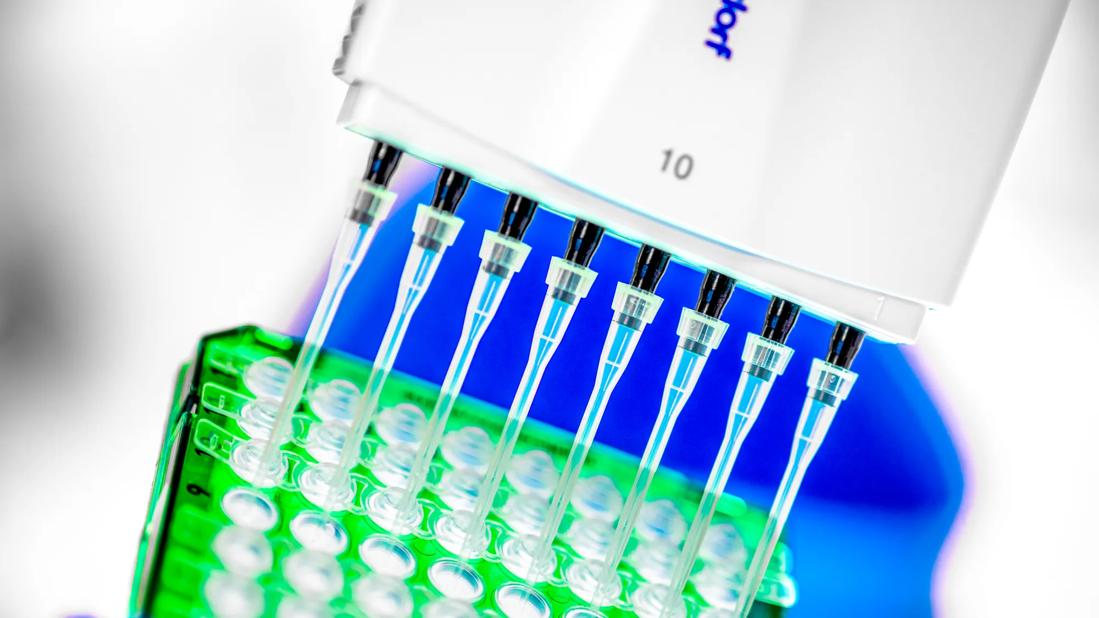Investigating a gene tied to both cancer and autism

Image content: This image is available to view online.
View image online (https://assets.clevelandclinic.org/transform/5769ed60-0f47-4853-81b7-7fd4296f0686/LRI_3153408_08-23-22_030_LDJ-jpg)
18-GMI-5562-Consult-QD-Image-650x450pxl
Almost monthly, we hear about new genes tied to autism spectrum disorders (ASD). Still, our understanding of the genetics of autism is years behind our understanding of how genetics affects cancer, for example. Together with Charis Eng, MD, PhD, Chair of Cleveland Clinic’s Genomic Medicine Institute, Iris Smith, PhD, is investigating a gene that has been linked to both cancer and autism.
Advertisement
Cleveland Clinic is a non-profit academic medical center. Advertising on our site helps support our mission. We do not endorse non-Cleveland Clinic products or services. Policy
Individuals with germline mutations in the gene phosphate and tensin homolog (PTEN) are diagnosed with PTEN Hamartoma Tumor Syndrome (PHTS). Clinically, PHTS patients have variable presentations, including distinct subsets of patients with a predisposition to cancer or to ASD.
In patients with cancer predispositions, early and frequent cancer screenings can be lifesaving. In patients with autism, timely diagnosis may lead to early interventions. Clearly, PTEN mutations can have a significant impact on a patient’s health, but how is it that mutations in a single gene can result in phenotypes (a set of observable characteristics) such as autism or cancer?
The Eng lab is taking a closer look via computational biochemistry. Computational biochemists develop and apply mathematical, statistical and computational methods to analyze biological data. “These tools allow us to see [inside] how molecules are working and give us a much deeper understanding of the disease mechanism,” Dr. Smith says. Through computer-simulated structural analysis and molecular dynamics, researchers are seeking differences in the PTEN mutations that lead to autism or cancer.
In a recent study, these researchers analyzed the PTEN missense mutations in samples from 17 patients. Of the 17, six had ASD only, six had PHTS-associated cancer only, four shared mutations across phenotypes, and one patient had both ASD and cancer.
All six cancer-associated mutations showed a global decrease in structural stability, and had a proclivity to unfold, inactivating an active site. In contrast, the ASD-associated mutations showed localized destabilization, contributing to the partial opening of an active site.
Advertisement
In other words, there is a distinct difference in how the PTEN mutations impact the gene’s structure and function among patients with ASD compared to those with cancer. According to Dr. Smith, “structural stability alterations affect PTEN’s ability to fold/unfold properly and reveals a relationship between effects of mutations on stability and severity of disease.”
Results from this study can inform future structural studies and serve as a harbinger of functional studies to be performed at a later date. Most importantly, the study results not only allow clinicians to better screen patients at risk for cancer, but may aid in a better clinical-molecular classification of the resulting phenotypes, and potentially allow for translation into new diagnostic therapeutic approaches to target PTEN-ASD. The significance of this study is that it calls for both early detection of cancer and awareness of the importance of precision therapy.
Advertisement
Advertisement
First full characterization of kidney microbiome unlocks potential to prevent kidney stones
Researchers identify potential path to retaining chemo sensitivity
Large-scale joint study links elevated TMAO blood levels and chronic kidney disease risk over time
Investigators are developing a deep learning model to predict health outcomes in ICUs.
Preclinical work promises large-scale data with minimal bias to inform development of clinical tests
Cleveland Clinic researchers pursue answers on basic science and clinical fronts
Study suggests sex-specific pathways show potential for sex-specific therapeutic approaches
Cleveland Clinic launches Quantum Innovation Catalyzer Program to help start-up companies access advanced research technology